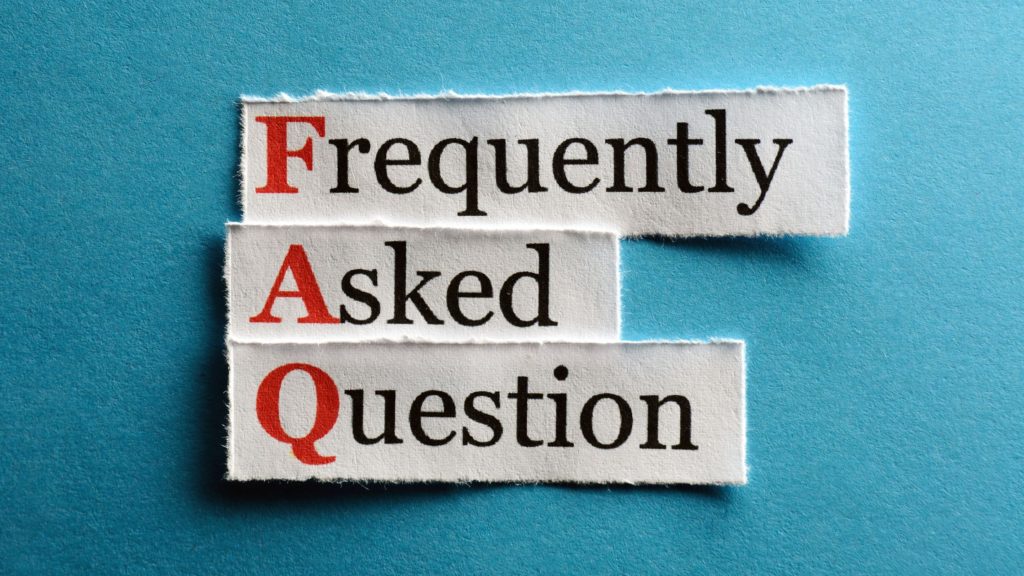
In this post, I’m going to dive deeper into the world of free blog platforms.
I’ll be discussing the various types of free blogging sites and platforms that are available.
In addition to that, I’ll also be providing you with instructions on how to create your own blog for free.
Starting a blog can be a daunting task, especially if you’re not familiar with the process, but don’t worry, by the end of this post, you’ll have a better idea on how to get started, and which platform is right for you.
In today’s digital age, blogs have become a powerful tool for communication and self-expression.
They provide a platform for people like you and me to share their experiences, thoughts, and ideas with the world.
Free blog platforms are especially important because they allow people who may not have the financial resources to pay for expenses of running their own blog to still share their stories and connect with others.
From WordPress to Blogger, I’ll go over the pros and cons of each platform, helping you choose the one that best suits your needs.
So, if you’re interested in starting your own blog, or just curious about free blog platforms, this article is for you!

Pros of Using A Free Blog Platform

Using a free blog platform can be a great way to start your blogging journey without breaking the bank.
They offer a range of benefits that can help you create a successful blog and connect with like-minded people.
Cost Effective
One of the most obvious benefits of using a free blog platform is that it’s, well, free!
If you’re just starting out and don’t have the funds to invest in a paid platform, then a free blog platform is a great option.
You won’t have to worry about any upfront costs like the purchase of a domain name or monthly fees like hosting, and you can start blogging right away.
Easy to Use
These free platforms are designed to be user-friendly, even for those who may not be tech-savvy.
You don’t need any coding skills or design experience to create a blog, as most platforms offer pre-made templates and drag-and-drop interfaces.
This means you can focus on creating content instead of spending hours trying to figure out how to use the platform.
Customizable
While free blog platforms may not offer as many customization options as paid platforms, they still allow you to personalize your blog to some extent.
You can usually choose from a range of templates, colors, and fonts to make your blog reflect your brand or personality.
Built-In Community
These free platforms often have built-in communities where you can connect with other bloggers and readers.
This can help you grow your audience, get feedback on your content, and even collaborate with other bloggers.
Being a part of a blogging community can help to make the blogosphere a less lonely place!
SEO-Friendly
Free blog platforms are usually structured with search engine optimization (SEO) in mind.
This means that your blog is more likely to appear in search results when people search for topics related to your niche.
Cons of Using A Free Blog Platform

While free blog platforms can be a great way to start your blogging journey, they do have some drawbacks that you should be aware of.
Consider these limitations before choosing a free blog, and decide if the benefits outweigh the drawbacks for your specific needs.
Limited Functionality
Free blog platforms may not offer as many features as paid platforms.
This can limit the customization options available to you and prevent you from achieving the exact look and functionality you want for your blog.
For example, you might want to customize what menus or sidebars show on a post by post basis, or choose different layouts for different posts, and many time, you can only access features such as this on self-hosted blogs.
Limited Control
When you use a free blog platform, you don’t own your blog.
The platform provider has control over your blog and can shut it down or make changes to it at any time, without warning.
Limited Monetization Options
Free blog platforms may limit the ways in which you can monetize your blog.
For example, many free platforms do not allow you to display ads (like Google Adsense) or add affiliate links to your posts.
If generating income is a goal for your blog, you may want to explore a self-hosted blog instead of a free one.
Advertisements
Some free blog platforms may display their own ads on your blog, which can be distracting to readers and take away from your content.
While some platforms may offer the option to remove ads for a fee, not all do.
Branding Limitations
Some free blog platforms may place their logos or web address on your blog, which can make it difficult to establish your own brand identity.
This can be especially problematic if you’re using your blog to promote a business or personal brand.
Limited Support
With free blog platforms, you may not have access to the same level of support as paid platforms.
This means that if you encounter any technical issues or have questions about the platform, it may be difficult to get the help you need.
Top Free Blog Sites

If you are looking to start a blog for free, there are a lot of options available.
Here are some of the top free blog sites to consider:
WordPress.com
WordPress.com is a popular free blog site that allows users to create a blog in minutes.
It offers a range of features and customization options to make your blog unique, including a variety of themes and plugins.
With WordPress.com, you can choose from a variety of blog formats, including personal blogs, business blogs, and more.
One of the benefits of using WordPress.com is its user-friendly interface, which makes it easy for beginners to set up and manage their blogs.
It also offers free hosting, so you don’t have to worry about paying for a separate hosting service.
Another advantage of WordPress.com is its community of bloggers.
You can easily connect with other bloggers on the platform, share your posts, and discover new content.
Additionally, WordPress.com has a built-in audience, so your blog can reach a wider audience than it might on other platforms.
However, there are also some drawbacks to using WordPress.com.
The free version of the platform comes with some limitations, such as the inability to use custom themes or plugins, and you may have to pay for some premium features.
Additionally, your blog will have a WordPress.com subdomain, which may make it less professional-looking than a blog with its own domain name.
Overall, WordPress.com is a great option for anyone looking to create a free blog quickly and easily.
It’s user-friendly, has a strong community, and offers a range of features and customization options.
Blogger.com
Blogger.com is another popular free blogging platform that allows users to create and manage their own blogs for free.
It was created by Pyra Labs in 1999 and later acquired by Google in 2003.
Blogger.com offers a simple and user-friendly interface, making it easy for beginners to create and customize their blogs.
It provides a wide range of templates, designs, and layout options to choose from, and allows users to customize the look and feel of their blogs according to their preferences.
One of the key advantages of using Blogger.com is its seamless integration with other Google services such as Google Analytics, Google AdSense, and Google Drive.
This makes it easy for bloggers to track their website traffic, monetize their content, and store their files and documents.
Blogger.com also offers several features for optimizing blog content for search engines, such as customizable meta tags, automatic sitemaps, and search engine-friendly URLs.
It also allows users to schedule and publish posts in advance, and offers basic analytics and statistics tools to help bloggers track their performance.
However, one of the major drawbacks of using Blogger.com is that it doesn’t offer as much flexibility and customization options as other platforms like WordPress.
It also doesn’t offer as many plugins or third-party integrations, making it difficult to add additional functionality to the site.
Additionally, the platform has seen fewer updates and improvements in recent years compared to other blogging platforms.
Medium.com
Medium is a free online publishing platform founded in 2012 by Evan Williams, who also co-founded Twitter and Blogger.
Medium allows users to write and publish their own articles, as well as discover and read articles written by others.
The platform’s unique algorithm displays articles to users based on their reading history and interests, making it a great way to discover new content.
One of the benefits of Medium is that it provides a clean and simple writing interface, allowing writers to focus on their content without being distracted by complicated formatting options.
Additionally, Medium has a built-in community of writers and readers, providing a great opportunity for writers to gain exposure and connect with like-minded individuals.
Medium also offers a Partner Program, which allows writers to earn money for their writing based on the engagement their articles receive from readers.
This can be a great incentive for writers looking to make money from their writing without having to invest in their own website or marketing efforts.
Overall, it’s a great option for writers who want to focus on creating quality content and connecting with a community of readers and writers, without the added hassle of managing their own website or marketing their content.
Wix.com
Wix.com is a popular website builder that provides a range of customizable templates for creating professional-looking websites and blogs.
It’s a great option for beginners who don’t have any coding experience because it offers an intuitive drag-and-drop interface.
Wix.com also provides a wide range of features and tools, including SEO optimization, e-commerce integration, and social media sharing, which can help bloggers increase their online presence and reach a larger audience.
Moreover, Wix.com is free to use and provides a generous amount of storage and bandwidth, making it an attractive choice for those looking to start a blog without spending money.
Weebly.com
Weebly.com is a free blogging platform that provides a simple and user-friendly interface to create and publish blogs.
The platform offers a range of customizable templates to choose from, which makes it easy to create a professional-looking blog even if you have no prior experience in web design.
One of the great things about Weebly.com is that it provides free hosting for your blog, which means you won’t have to worry about finding a separate hosting provider.
Additionally, Weebly.com is known for its excellent customer support, which is available 24/7 to help you with any issues you may encounter.
Weebly.com also offers a range of features that can help you grow your blog, such as SEO optimization tools, social media integration, and the ability to add a custom domain name.
Overall, it is a great option for anyone looking to create a professional-looking blog without having to invest in expensive web design or hosting services.
When choosing a free blog site, it’s important to consider the features that are most important to you.
Some sites offer more customization options, while others focus on simplicity and ease of use.
It’s also important to consider whether the site includes ads or not, as this can affect the user experience.
How to Create a Blog for Free

Creating a blog for free can seem daunting, but it’s actually a straightforward process.
Here’s a step-by-step guide to help you create your own blog for free:
- Choose a blogging platform – Select the blogging platform you want to use. As we’ve discussed earlier, there are many free blog platforms available such as WordPress, Blogger, Medium, Wix, and Weebly.
- Register for an account – After selecting a platform, create an account by providing your details. This usually includes your email address and a password.
- Choose a domain name: Select a domain name for your blog. This is the web address that people will use to find your blog. Make sure the domain name is easy to remember and relevant to your blog’s topic.
- Select a theme: Choose a theme that fits your blog’s style and design. Most blogging platforms have free and paid themes available.
- Customize your blog: Customize your blog to make it unique. You can add widgets, menus, and other features that match your blog’s design and functionality.
- Create your first blog post: Start creating content by writing your first blog post. Make sure it’s engaging, informative, and relevant to your target audience.
Tips for Creating a Successful Blog
Creating a successful blog takes time and effort.
Here are some tips to help you create a successful blog:
- Define your niche: Choose a niche that you’re passionate about and that has a large audience. This will help you create relevant and engaging content that resonates with your readers.
- Write regularly: Consistency is key when it comes to blogging. Create a blogging schedule and stick to it. This will help you build a loyal audience.
- Engage with your readers: Interact with your readers by responding to comments, answering questions, and creating content that addresses their needs and interests.
- Promote your blog: Promote your blog on social media, forums, and other platforms. This will help you reach a larger audience and attract more readers.
How to Optimize Your Blog
Optimizing your free blog site is essential if you want to increase traffic, improve search engine rankings, and ultimately grow your audience.
Here are some tips to help you optimize your blog:
- Create high-quality content: Write informative, engaging, and well-researched blog posts that provide value to your readers. Use relevant keywords and present information in a clear and concise manner.
- Use headings and subheadings: Structuring your blog posts with headings and subheadings makes it easier for readers to scan and digest your content. It also helps search engines understand the structure and organization of your blog.
- Ensure your blog site is mobile-friendly: More and more people are accessing the internet via their smartphones and tablets. Choose a responsive theme or template that automatically adjusts to different screen sizes and make sure your blog is easily accessible and navigable on mobile devices.
- Use social media: Promote your blog posts and engage with your audience on social media platforms. Share your posts, respond to comments and questions, and build relationships with your followers.
- Incorporate images and videos: Visual content is more appealing to readers and can help break up text-heavy blog posts. Use images, infographics, and videos to make your content more visually appealing and engaging.
- Use plugins or widgets: Add functionality to your blog with plugins or widgets that enhance the user experience. Some useful plugins include social sharing buttons, email subscription forms, and related posts.
By following these tips, you can optimize your free blog site and improve its visibility, usability, and appeal to both readers and search engines.
How to Monetize Your Blog

Monetizing your free blog site is a great way to earn money while doing what you love.
The good news is that there are many ways to monetize your blog site, even if it is a free platform.
Here are some of the best ways to make money with your free blog site:
- Advertising: One of the most popular ways to monetize a blog is through advertising. You can use display ads, banner ads, or even Google Adsense to earn money from your blog. However, it’s important to remember that too many ads can turn off your readers, so be sure to balance your ads with quality content.
- Affiliate marketing: Affiliate marketing is another popular way to monetize a blog site. Essentially, you promote products or services through affiliate links, and when someone clicks on the link and makes a purchase, you earn a commission. This is a great way to make money without having to create your own products or services.
- Sponsored posts: Sponsored posts are a type of advertising where you create content that promotes a product or service in exchange for payment. This is a great way to make money while also providing valuable content to your readers.
- Sell products or services: If you have a product or service to sell, you can use your blog site to promote it. This is a great way to turn your blog into a business and make money while doing what you love.
- Donations: Some bloggers choose to monetize their blog site through donations. This can be done through platforms like Patreon or PayPal, where readers can support your blog by donating money on a regular basis.
In order to monetize your free blog site successfully, it’s important to create quality content that engages your readers.
You should also focus on building a strong following and engaging with your audience through social media and email marketing.
By using a combination of these strategies, you can turn your free blog site into a profitable venture.
Final Thoughts

Throughout this article, I’ve covered the various free blogging platforms available and discussed the pros and cons of each.
I hope this information has been helpful in determining which platform is the best fit for your blogging needs.
If you’re interested in diving deeper into the world of blogging, I highly recommend checking out “Blogging for Dummies.”
This comprehensive guide is packed with valuable insights and resources to help you start and grow a successful blog.
But don’t stop there – if you’re looking to turn your passions into profit through blogging, be sure to also check out my post titled: How to Start Your Own Money-Making Website and Turn Your Passions Into Full-Time Profit
With the right tools and strategies, you can leverage your unique interests and expertise to build a successful online business.
So, whether you’re a seasoned blogger or just starting out, the world of blogging is waiting for you.
Take the first step today and start exploring the exciting possibilities of sharing your thoughts, ideas, and expertise with the world!
Quick FAQ’s

Are free blogs really free?
Yes, free blogs are typically free to sign up for and use, but they may come with limitations or restrictions.
For example, you may have limited storage space, limited design options, or be required to display ads.
Additionally, some platforms may offer premium features or upgrades that come with a cost.
What are the advantages of using free blog sites?
Using free blog sites can be advantageous for people who want to share their thoughts, ideas, and stories with others without the need for technical skills or upfront costs.
These sites may also offer some basic design templates and tools that can help bloggers get started quickly.
Additionally, free blog sites can be a good way to reach a wider audience and potentially connect with like-minded individuals.
Is a free WordPress blog worth it?
A free WordPress blog can be a good option for those who are just starting out and want to test the waters of blogging without any financial investment.
However, it may come with certain limitations such as restricted design options and limited storage space.
If you’re serious about blogging and want more flexibility and control, it may be worth investing in a paid plan or self-hosted WordPress site.
Should you host your own blog?
Hosting your own blog can provide more control over your site, including greater customization options and the ability to monetize your blog without restrictions.
However, it also requires technical skills and knowledge, as well as ongoing maintenance and security updates.
If you have the necessary skills and resources, self-hosting can be a good option, but for those who don’t, a free or paid blog hosting service may be a better fit.
How do you make money with a free blog?
Making money with a free blog can be challenging, but there are several ways to monetize your site.
These may include displaying ads, affiliate marketing, sponsored content, and selling products or services.
However, it’s important to keep in mind to check if your blog platform will allow monetization with their free plan.
Do free WordPress sites rank well?
WordPress sites can rank well in search engines if they are optimized for SEO, have high-quality content, and a good backlink profile.
However, simply using WordPress as your platform does not guarantee good rankings – you still need to put in the effort to create valuable content and implement SEO best practices to improve your chances of ranking well.
Why it is not recommended to use free WordPress themes?
Using free WordPress themes can be risky because they may not have undergone the same level of security and code review as premium themes.
Free themes may also be more likely to contain malicious code, which can harm your site and compromise your security.
Additionally, free themes often have limited support and customization options, which can hinder your ability to create a unique and functional website.

 10 Pinterest Strategies to Skyrocket Your Blog Traffic
10 Pinterest Strategies to Skyrocket Your Blog Traffic